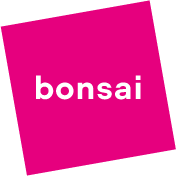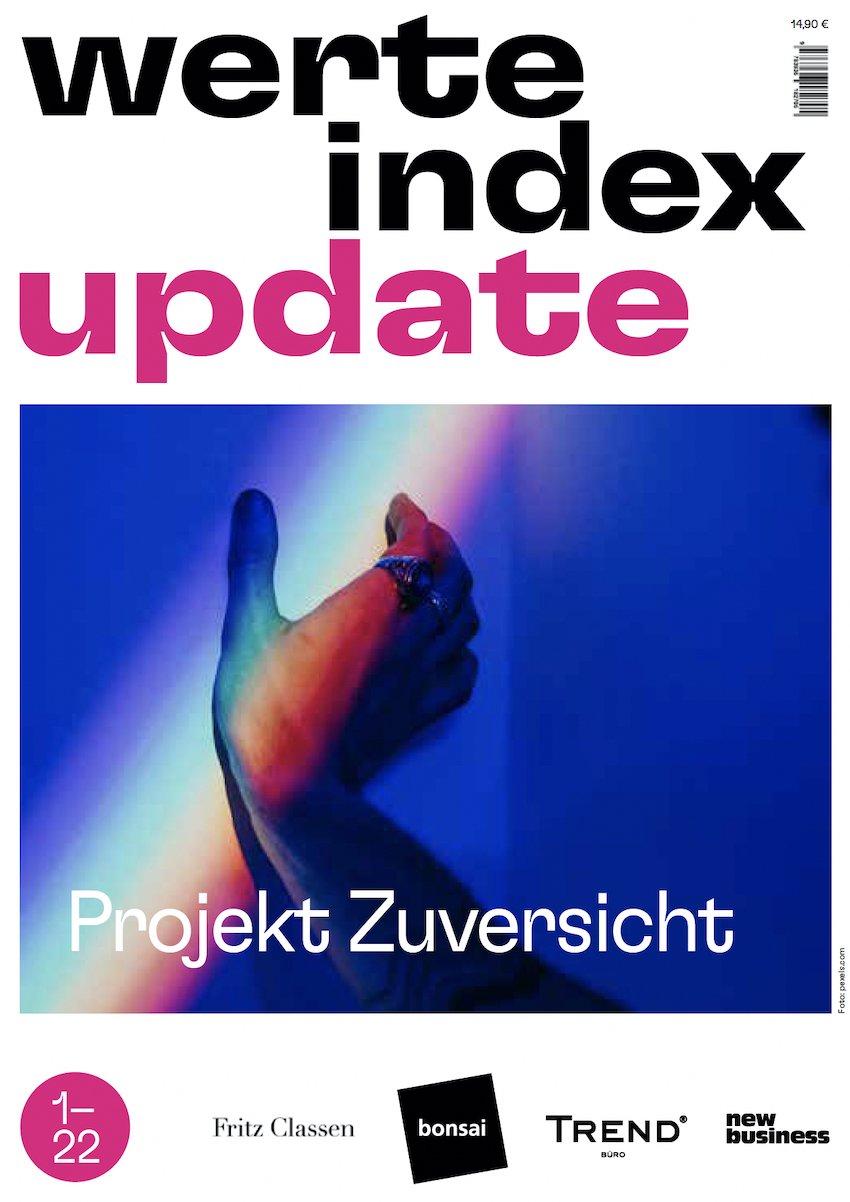The new Values Index: How Germany thinks and feels
Under the title "Values Index Update 2022/1 - Project Confidence", the new evaluation of the largest social media study on social developments is published today. Since the change in values is taking place faster than ever before, the Values Index, which was previously published every two years, will in future come out several times a year with such an update of current values. Since the first survey in 2009, the editors of the study have been Prof. Peter Wippermann (founder of Trendbüro) and Jens Krüger (CEO of Bonsai Research). New to the editorial board is the management consultancy Fritz Classen with Managing Director Björn Welzel; Prof. Peter Wippermann has handed over to Ulrich Köhler from Trendbüro.
Health is the most important value for Germans - ahead of freedom and family
Health - In the second year of the pandemic, this value continues to occupy people's minds the most. Attitudes towards health are becoming formative in many areas of life.
Freedom - This value caused the possibility of vaccination to shoot up as early as spring 2021. In the second half of the year, the topic of freedom continued to gain ground in the public discussion and moved up from 4th to 2nd place in the ranking of the most discussed values.
Family - It is striking that the value of family, which is seen as a (retreat) place of security especially in times of crisis, has lost one place and now ranks third. Family becomes a symbol of the extraordinary burdens that the ongoing state of emergency demands of individuals.
Values Index Update 2022/1 -
Project Confidence
In 2021, a total of 18,825,145 social media posts were evaluated with the help of artificial intelligence - more than ever before. However, the "new" values index is also not a study of large numerical orgies: rather, the results are used to interpret the change in values, to detect new trends and to find concrete examples of how companies, politics and society are already changing and will have to change in the future. Why the title "Project Confidence"? We see that the issues that move people are being addressed more actively. The pandemic has not lost its horror, but the doomsday mood has given way to pragmatism. More and more often, solidarity is not only expressed, but actually lived. This is what active helpers and donors stood for last year after the floods in the Ahr valley and now in supporting the war refugees from Ukraine.
Jens Krüger, CEO of Bonsai Research: "The value index shows: We have all learned to leave our comfort zone during the pandemic. We have practised resilience during these years. In the face of many crises and wars - in the world and now also in the heart of Europe - we have learned to adapt more quickly to change."
Ulrich Köhler, Managing Director of Trendbüro: "Our society faces a great feat of strength and time and again we have to agree on common goals. Common values are an important compass for this, guiding the project of confidence. And by the way, values help organisations of all kinds to interpret the zeitgeist correctly and thus to master the high good of cultural connectivity."
Björn Welzel, Managing Director at Fritz Classen: "Shared values are not only important in the relationship between people. Brands also need to understand and analyse the motives and motivations of their target group and reflect and align their actions on this basis in order to succeed."
A detailed analysis of the individual conversations and posts shows that all values are currently being renegotiated - whether in the family or in politics. People have realised that there will no longer be a way back to the old "normal". The times are changing. Politically, socially and also in the individual context.
The most important value Health - what concerns people most
The value index not only shows how often and thus how intensively people deal with a value in social media, but also which aspects move them the most. For example, health: Half of all posts on the value of health in the second half of 2021 deal with the topic of Corona and specifically with questions about the possible individual (long-term) consequences as well as the effects on society. The topic of health in everyday life is becoming more present and is also manifested in the language with "Stay healthy! Pure lifestyle aspects of the health topic have faded into the background compared to previous years: Only three percent of the contributions still deal with this.
As bonus material, we have summarised "Three Trends of the Value Index Update 1/2022" for you below. If you need more detailed information on the individual values - and/or are interested in the publication, in which you will also find examples of companies and organisations that stand for individual trends - please contact us.
Contact:
Jens Krüger
jens.krueger@bonsai-research.com
+49 160 8835825
About the value index
The German Values Index has been published every two years since 2009 by Prof. Peter Wippermann (Trendbüro) and Jens Krüger (Bonsai Research). The Values Index is compiled by the research team of Bonsai Research and Trendbüro. The publication is based on the recording of 15 fundamental values in the German-language social media.
About the "new" Values Index 2022
In order to take into account the accelerated change in values in society, the Values Index will appear several times a year with updates and new results. In addition, companies and organisations can obtain current evaluations at any time in order to recognise and react to changes in values at an early stage. For the Values Index, 18,825,145 social media posts were evaluated last year with the help of AI. For the current update, posts were evaluated that appeared in relevant social media between 1 July and 31 December 2021 - including not only word posts but also photos, for example on Instagram. This year, Prof. Peter Wippermann handed over the editorship to Ulrich Köhler, Managing Director of the Trendbüro. In addition to the Trendbüro and Bonsai Research, the management consultancy Fritz Classen is now also involved; its Managing Director Björn Welzel completes the trio of editors. As usual, the Values Index is compiled by the research team of Bonsai Research and Trendbüro.
Three trends of the Value Index Update 1/2022
- Living regeneratively
- Letting go of constricting
- Dare community
Trend 1 - Living regeneratively
Regenerative living not only stands for a generally significantly increased awareness of climate protection, but also encompasses many important areas and topics of life - from health to generational justice, from energy transition to nutrition. The pandemic has profoundly changed our awareness of the well-being of our bodies and increased our efforts to live a healthy lifestyle. Users motivate themselves in social media to exercise more and eat better (less meat!) - and also want more support when it comes to preventing diseases. Generation Z is increasingly asserting its values in terms of health and sustainability, thus challenging politics and business. Users have developed a sense for their individual climate footprint and demand that companies contribute to climate protection just as they do or would like to do in their private lives.
Trend 2 - Letting go of constricting things
Pandemic everyday life is characterised by numerous restrictions. The more constricting they are perceived, the greater the individual's longing not to align himself or herself with the normative ideas of others. Young users in particular want to lead their everyday lives in a (self-)secure and self-determined manner. Young talents and employees have become more uncompromising in their desire for appreciative, flexible working relationships. Parents do not feel sufficiently listened to, complain in particular about the lack of support in childcare and the (too) high burdens of family and work.
Trend 3 - Daring Community
The pandemic has fundamentally changed the way we interact socially. Many people, especially women living alone and younger people, feel lonely. But one in three was also satisfied with the social withdrawal in the lockdown. And many users use the virtual space to experience and organise togetherness in a new way. The central question is: How do we want to live together under the new conditions and experience the diversity of other lifeworlds?


